
Onar Alili
Engineer
6 minutes to read
Defending WooCommerce: How we blocked 450,000 card testing attempts in one week
Attack overview
We recently stopped the largest WooCommerce card testing attack we’ve seen. Attackers targeted PayPal, credit, and debit card processors across multiple stores, creating thousands of failed orders marked with Origin = “Unknown.”
Merchants using OOPSpam’s protection settings were already covered. Our systems blocked over 450,000 attack attempts in one week.
This attack was broader than previous campaigns that mainly targeted PayPal through Block-based Checkout. For background, see our earlier posts:
- Attack overview
- What we saw
- How attackers bypassed security checks
- Impact on merchants
- How we mitigated at the edge and the application layer
- Indicators and patterns from this campaign
- Recommendations
- For teams already using OOPSpam
- Closing notes
What we saw
- Large, sudden bursts of checkout attempts across multiple WooCommerce sites using both Classic and Block‑based Checkout
- Gateway coverage: PayPal, credit, and debit processors targeted, not just PayPal
- Orders frequently recorded with Origin = “Unknown” or missing “Device Type” in Order Attribution
- Highly uniform session characteristics (for example, identical “Session page views” across many attempts)
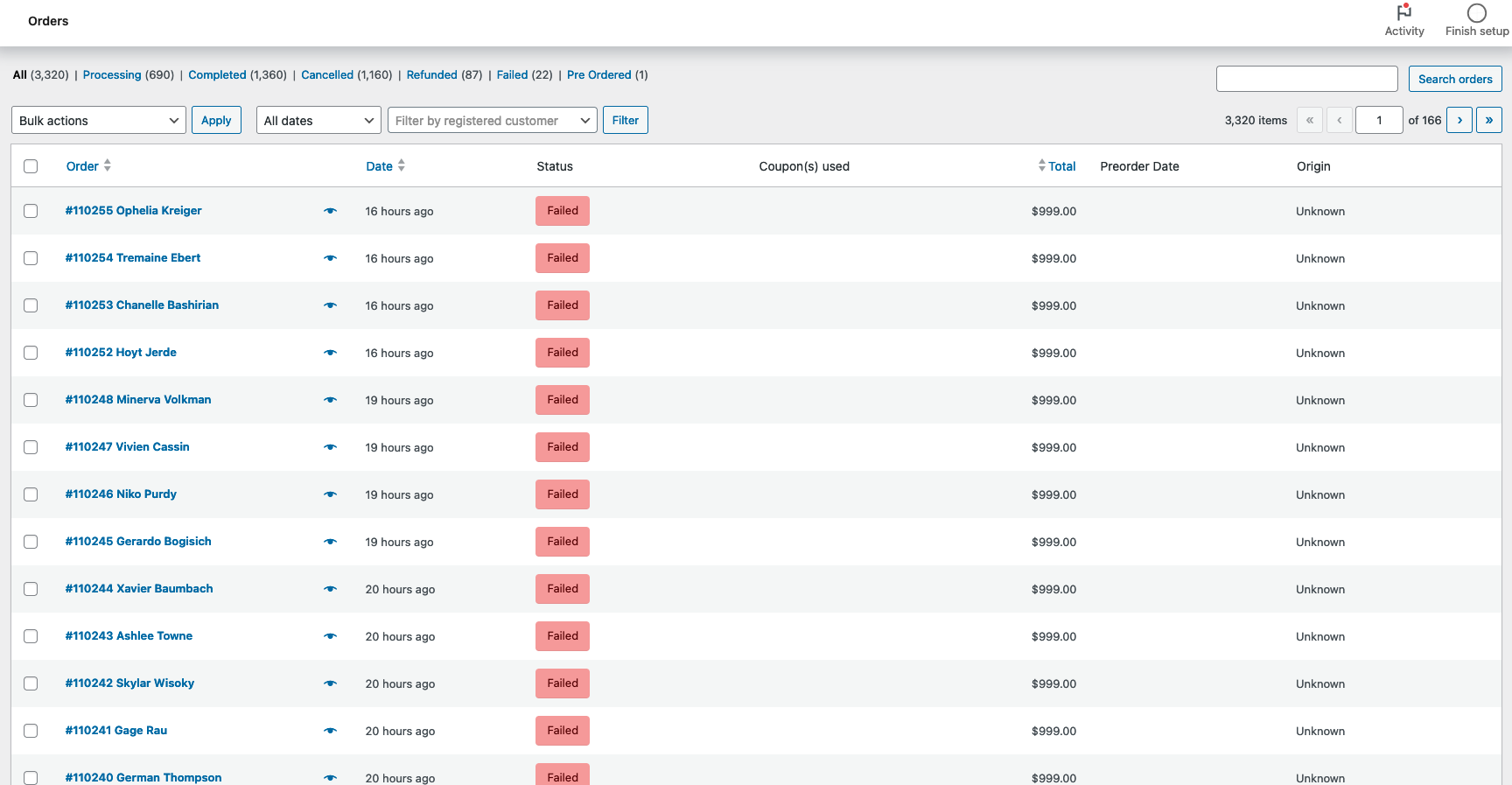
How attackers bypassed security checks
WooCommerce’s newer Block‑based Checkout uses different code paths than the classic checkout. Many security tools were built for the old system and miss activity on the new one. Attackers took advantage of this gap by using both checkout types and multiple payment gateways, relying on:
- API‑first paths that bypass legacy hook‑based checks
- Express checkout shortcuts that go directly to payment processors
- Incomplete attribution (Unknown origin, missing device type) that correlates strongly with automation

Impact on merchants
- Processor health: elevated declines can trigger risk controls and temporary blocking of legitimate payments
- Email reputation: spikes of failure notifications and bounces can harm deliverability
- Operational load: flooded order lists and support queues
How we mitigated at the edge and the application layer
Our mitigations combine attribution‑aware rules with IP/email reputation. All three of the following attribution‑based controls leverage WooCommerce Order Attribution (WooCommerce ≥ 8.5):
- Block orders from unknown origin
- Blocks orders when WooCommerce cannot reliably attribute the origin. This has been effective against Store API‑driven automation. We broadened coverage to account for different gateway flows.
- Require valid device type
- Blocks orders when the Device Type field is missing or invalid. This is another strong automation signal.
- Minimum session page views (new)
- Blocks orders if the session’s page views fall below a threshold. Card‑testing bots commonly show the exact same low page‑view count across attempts.
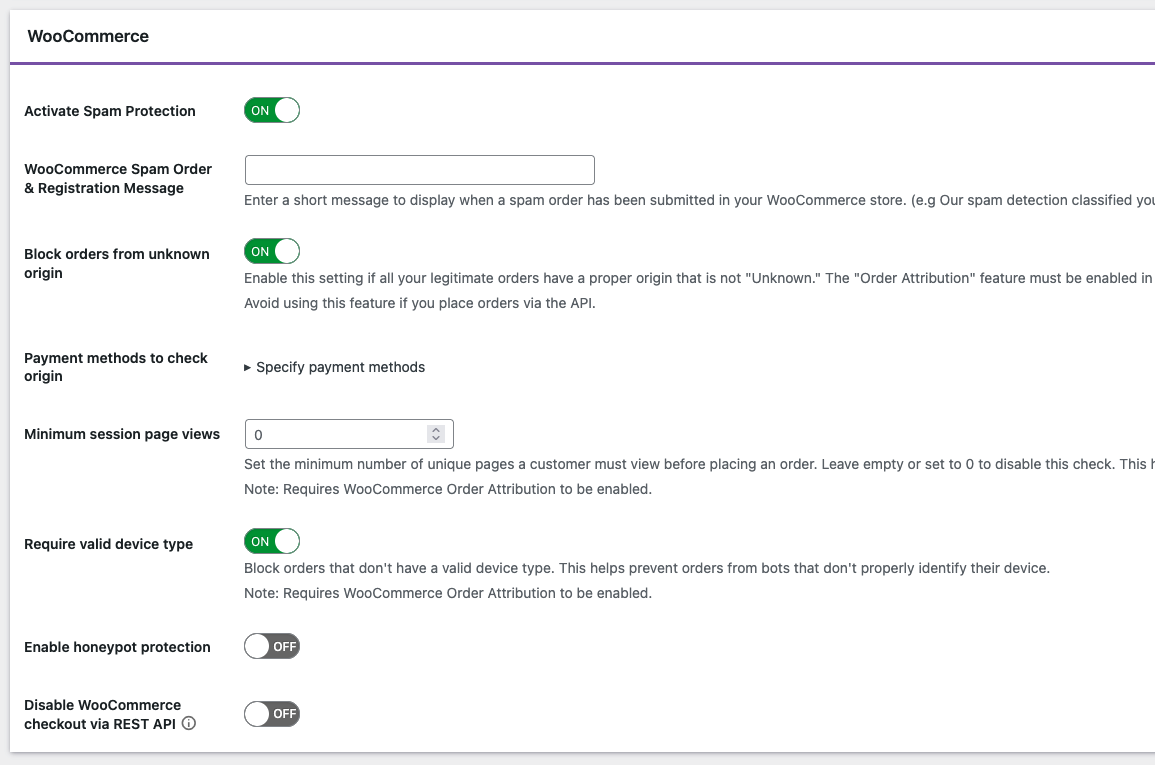
Blocked entries appear under Form Spam Entries for review.

In parallel, our IP and email reputation engines blocked over 450,000 attempts during the heaviest 7‑day window.
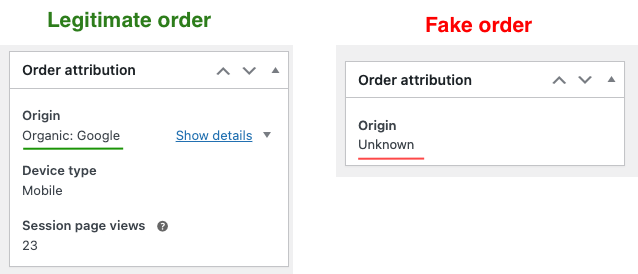
Indicators and patterns from this campaign
- Geography: ~65% sourced from the United States; notable volumes also from Brazil, Venezuela, Colombia, Kosovo, and South Africa
- Target regions: most targeted stores were in the US, UK, Australia, and New Zealand
- Attribution anomalies:
- Origin sometimes shows Unknown
- Sometimes a valid Origin but missing Device Type
- Identical Session page views across large batches
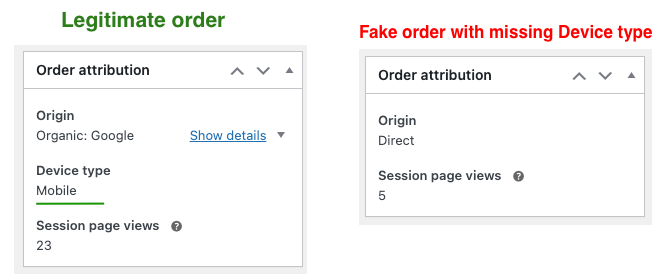
Recommendations
-
Remove Express Checkout
Express paths can hit processors directly, skipping fraud‑relevant hooks. Removing or gating them reduces exposure.
-
Update WooCommerce and enable Order Attribution tracking
Ensure you’re running WooCommerce ≥ 8.5 with Order Attribution enabled. This provides the data needed for attribution-based detection rules to work effectively.
-
Compare attribution on fake vs legitimate orders
If fake orders show Unknown Origin, missing Device Type, or uniform Session page views, enable:
- Block orders from unknown origin
- Require valid device type
- Minimum session page views
-
Add a CAPTCHA where appropriate
A lightweight CAPTCHA like Cloudflare Turnstile helps discourage automation on checkout.

-
Restrict by geography
Block countries you don’t sell to at Cloudflare WAF.
Or use OOPSpam’s country restrictions to prevent order placement from selected countries while keeping the site accessible.
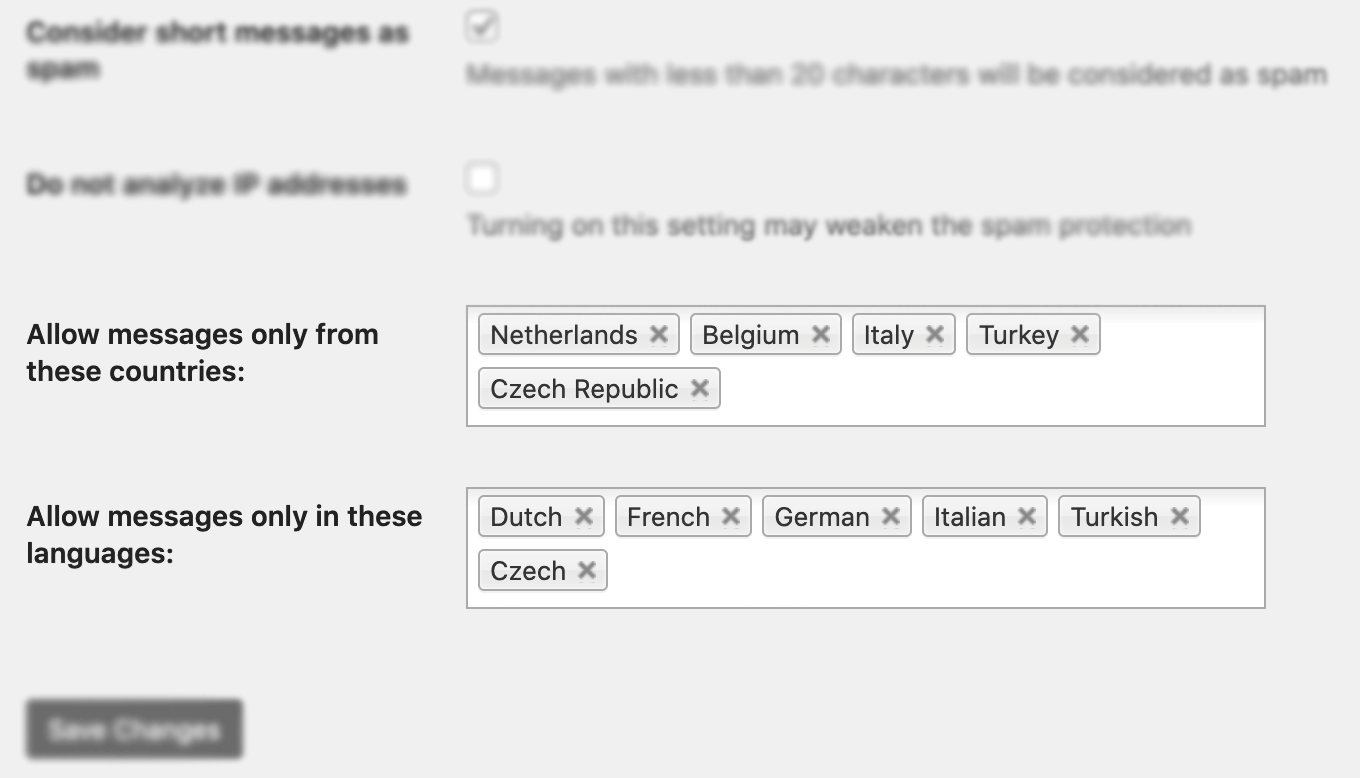
- (Optional) Disable WooCommerce checkout via REST API If you have no third‑party integrations that rely on REST (for example, Amazon, marketplaces, or custom apps), you can enable OOPSpam’s “Disable WooCommerce checkout via REST API.” Our data indicates this wave wasn’t primarily using REST endpoints, so treat this as a defense‑in‑depth option only when safe to enable.
For teams already using OOPSpam
Merchants with “Block orders from unknown origin” enabled were already protected during this campaign. We have since:
- Expanded gateway coverage for Unknown Origin detection
- Added “Require valid device type” and “Minimum session page views” controls to catch more automation patterns
If you haven’t enabled these yet, see our step‑by‑step guide.
Closing notes
This attack shows how fraudsters adapt to new WooCommerce features like Block-based Checkout. Our attribution-based controls and reputation systems effectively stop these attacks while keeping legitimate orders flowing. We’ll keep updating our detection as attackers try new tactics.